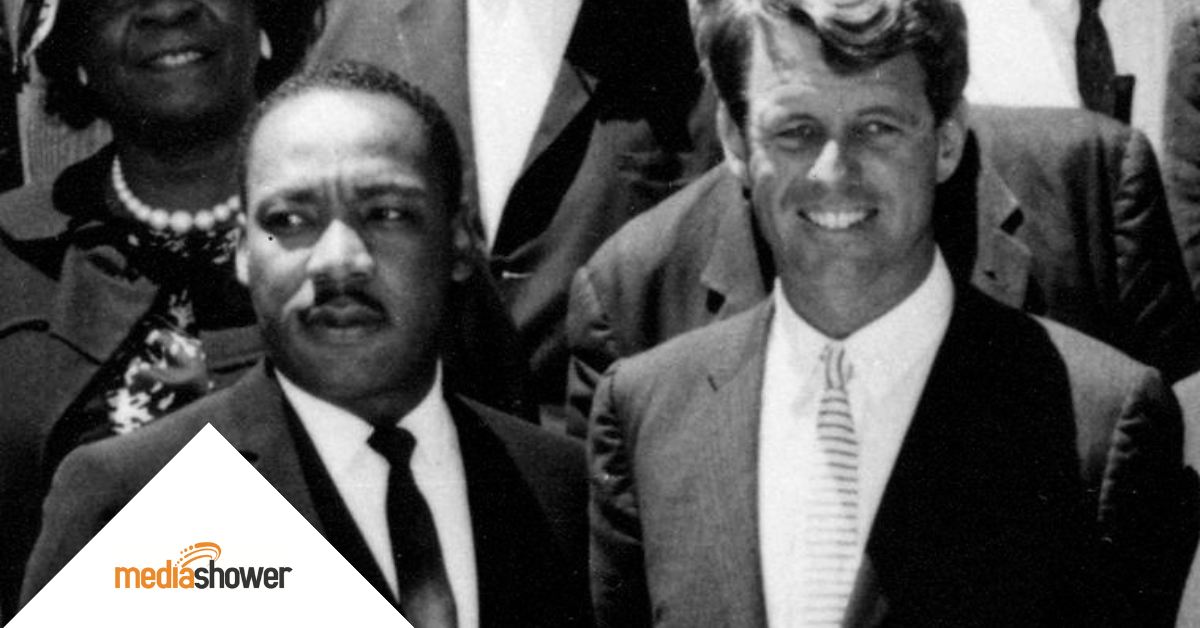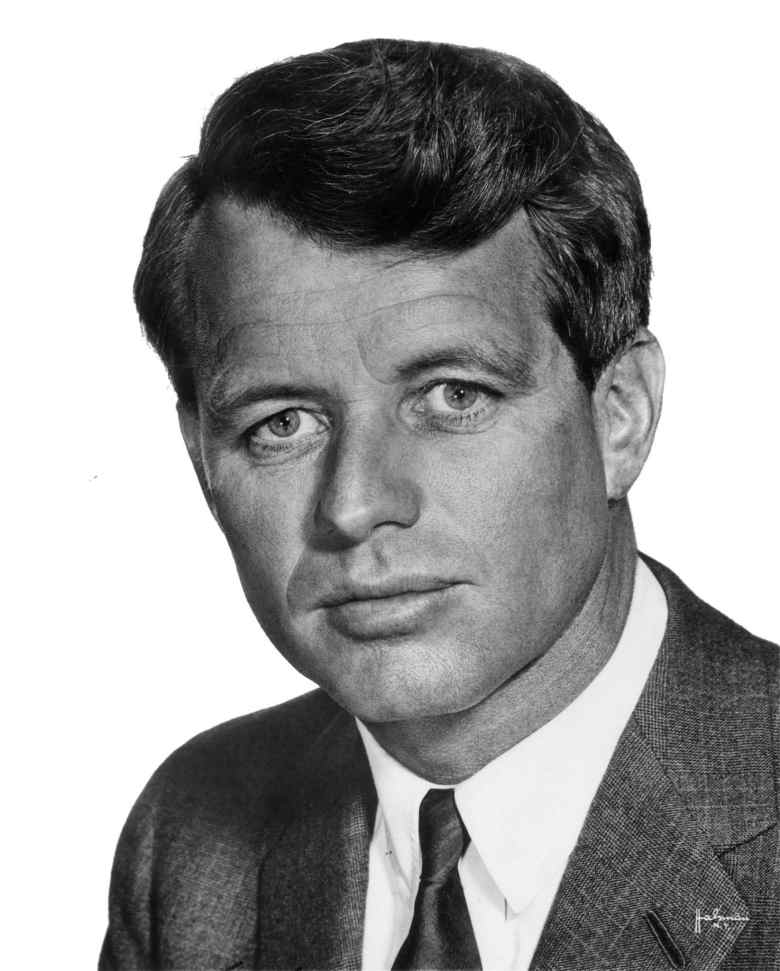
Robert F. Kennedy’s speech on Martin Luther King Jr.’s (MLK) assassination is one of the most memorable and impactful moments in American politics.
On April 4, 1968, the day MLK was assassinated in Memphis, Tennessee, Kennedy was campaigning for the Democratic nomination for President. That evening, he was scheduled to speak at a campaign rally in Indianapolis, Indiana.
RFK’s speech was remarkable for its compassion, empathy, and call for peace and understanding during great national turmoil. He spoke from the heart, without a prepared script, urging those present to respond to hate and violence with love and wisdom.
Here’s what great communicators can learn from this historic speech.
Create a Direct Connection With the Audience
Upon learning of King’s death, Kennedy decided to go ahead with his scheduled appearance despite concerns for his safety, and recommendations from local police to cancel the event.
The crowd, primarily African American, had not yet heard the news of King’s assassination. Kennedy delivered the news, standing on a flatbed truck in a predominantly African American neighborhood.
In delivering this speech, RFK took a significant chance, with the risk that a white man attempting to discuss this tragedy might not be able to grasp the painful reality of the event.
RFK, however, confidently stepped into it by specifically addressing race:
“For those of you who are Black and are tempted to fill with — be filled with hatred and mistrust of the injustice of such an act against all white people, I would only say that I can also feel in my own heart the same kind of feeling. I had a member of my family killed, but a white man killed him.
But we have to make an effort in the United States. We have to try to understand, to get past, or to go beyond these rather difficult times.”
RFK attempts to bridge the gap between himself and his audience by identifying the rising tide of (primarily white) radicalism that has already pushed back against civil rights, voting rights, etc. He also points out the death of his brother, noting that there is a shared struggle that has taken the life of someone important.
He emphasizes this moment by citing power from Aeschylus:
“Even in our sleep, pain which cannot forget
falls drop by drop upon the heart,
until, in our own despair,
against our will,
comes wisdom
through the awful grace of God.”
As marketers, we rarely deal with issues so heavy or society-shaping. However, we can learn the importance of empathy in creating genuine connections with an audience in this speech. Kennedy doesn’t mince words or hedge himself–by coming out fresh, breaking the news, and identifying with it, he opens a space for shared experience. Good communication can focus on empathizing with an audience and their needs, finding a shared experience, and showing oneself as authentic.
Appeal to Calm

While appealing to emotion is a powerful rhetorical technique, it can also get out of control. RFK, even while he appeals to the emotional weight of the situation, uses reason to warn the crowd against violence:
“What we need in the United States is not division; what we need in the United States is not hatred; what we need in the United States is not violence and lawlessness, but is love, and wisdom, and compassion toward one another; and a feeling of justice toward those who still suffer within our country, whether they be white or whether they be Black.
So I ask you tonight to return home, to say a prayer for the family of Martin Luther King — yeah, it’s true — but more importantly to say a prayer for our own country, which all of us love — a prayer for understanding and that compassion of which I spoke.”
It’s hard to hear someone call for unity at such a time, but RFK appeals to a sense of American unity (“we do not need violence and lawlessness”) and shared identity. He uses this time to call for justice, a challenging concept in highly emotional situations.
He closes that idea out with a call for unity, one which reiterates his call for connection and shared experience:
“But the vast majority of white people and the vast majority of Black people in this country want to live together, want to improve the quality of our life, and want justice for all human beings that abide in our land.”
As we build our communication skills, we learn how important it is to balance emotional and logical appeals to appeal to our audience. Shared experience and pain points must be complemented with facts, reason, and an appeal to make good decisions even in the worst of times.
Appeal to Higher Values
Kennedy called for an effort to “tame the savageness of man and make the life of this world gentle.” He appealed for unity, understanding, and a peaceful response to the tragedy, emphasizing the need to work together to end society’s division and hatred.
His speech had a profound effect. While over 100 cities across the country erupted in riots following King’s assassination, Indianapolis remained calm. Many attribute this to Kennedy’s words and how he connected with the crowd in a moment of shared sorrow and shock while calling on a sober sense of national unity.
As marketers and communicators, this speech teaches us how to combine emotional and logical appeals to help customers understand their needs while making good decisions. It also helps us better assess our messaging to serve the highest human values.
For marketing communication that makes a difference, get a free trial of the Media Shower platform, which combines AI and creative expertise in one streamlined workflow.
